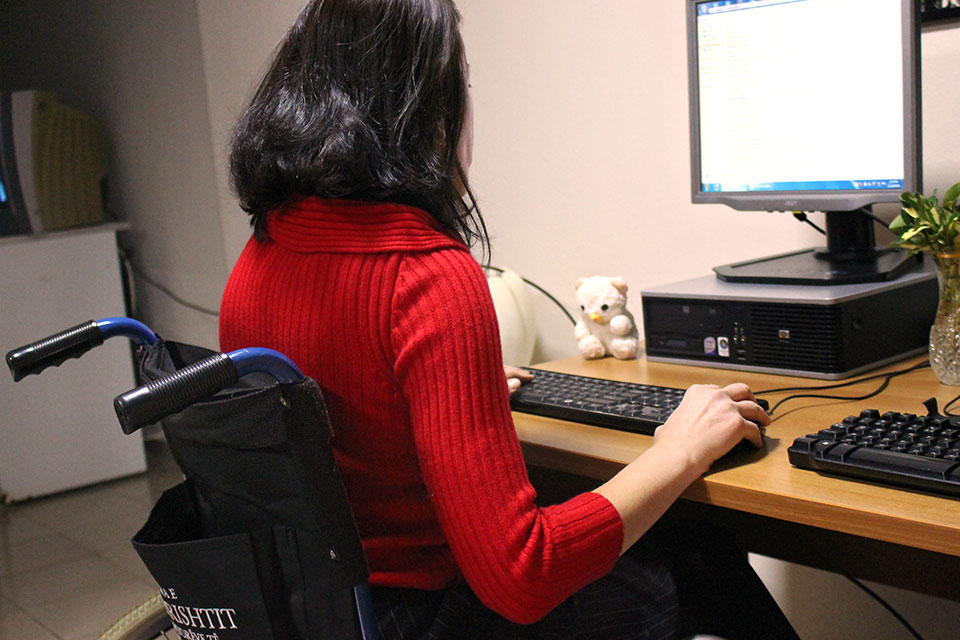From where I stand: “People with disabilities don’t talk about the violence they experience because often it means reporting the people closest to them”
Amira Kushta* was diagnosed with a rare tumor in the spine and was paralyzed after back surgery when she was 19. Her house became her prison for 24 years.Date:

I used to live on the fourth floor of an apartment building with my father, my brother and his wife. There was no elevator, and they couldn’t carry me up and down the stairs. For 16 years I didn’t even have a wheelchair. I ate, sitting at the corner of my bed, and then I lay down and watched TV. That was my life.
The situation deteriorated after my father died in 2005. For years, my sister-in-law verbally abused me, threatened to push me down the stairs… one time she even threw me against the wall.
I was not wanted in the house, and I was afraid to say anything. People with disabilities don’t talk about the violence they experience because often it means reporting the people closest to them. I never reported my sister-in -law because I wanted to protect my brother.
Three years ago, I finally got an administrative job and soon after I bought a mobility scooter with my own earnings and started living on my own.
It’s not easy living by myself, but at least I am free to move, to meet whom I want. Before I couldn’t meet anyone, no friends visited me. I used to talk on the phone with my relatives, but they didn’t know what was happening.
Now I have a normal life. I go to work, I do the chores at home without any help. I have friends.
However, infrastructure remains my biggest challenge—not all roads, public spaces or institutions accommodate the mobility and access needs of people with disabilities.”
Amira Kushta, from Tirana, Albania, felt like she got a new lease on life after receiving assistance from the Albanian Foundation for the Rights of People with Disabilities. The organization has recently contributed towards a report on violence against disadvantaged groups, as part of UN Women’s regional programme on Ending Violence against Women in the Western Balkans and Turkey, funded by the European Union. Her story tells the story of the Sustainable Development Goal (SDG) 10 that focuses on empowering and promoting the social, economic and political inclusion of all, irrespective of age, sex, disability, race, ethnicity, origin, religion or economic or other status. It is also related to SDG 5 on gender equality and ending violence against women and girls.
*Name has been changed to protect the identity of the individual.